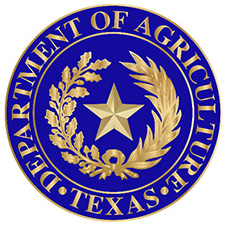(AG INSIDER) Like firefighters and police officers, farmworkers have been deemed “critical infrastructure workers,” meaning they will stay on the job even as the pandemic grows. But despite their essential status and a persistent outcry from their advocates, many of their employers, as well as state and federal agencies, have so far failed to address their heightened risk, reports Esther Honig in FERN’s latest story.
Honig writes: “In Immokalee, an agricultural hub in southwest Florida known as America’s “tomato capital,” thousands of farmworkers are busy during the peak of harvest season; many of the fresh tomatoes now in grocery stores — or being delivered to doorsteps— have passed through their hands.
“According to state health officials, between five and nine cases of Covid-19, the disease caused by the virus, have been reported in Immokalee. But even if that number can be trusted, given the lack of testing, it is almost certain to rise in the coming days and weeks. Immokalee is like ‘dry kindling,’ says Nely Rodriguez, a former farmworker who is now an organizer for the Coalition of Immokalee Workers, a human rights organization.
“On April 3, the community spoke up. Greg Asbed, a founder of the Immokalee Coalition, published an op-ed in The New York Times in which he was blunt about what this lack of protection will mean: ‘[I]f something isn’t done — now — to address their unique vulnerability, the men and women who plant, cultivate and harvest our food will face a decimating wave of contagion and misery in a matter of weeks, if not days,’ he wrote.
“That same day, the coalition sent a petition to Florida Governor Ron DeSantis urging him to provide farmworkers with gloves and face masks, economic assistance for sick workers, free virus testing and a field hospital — there is not a single hospital bed in Immokalee and the closest facility is 40 minutes away. Many residents do not own cars.”
Today’s quick hits, April 13, 2020
JBS cleans beef plant (Farm Journal): Meatpacker JBS USA said its cattle slaughter plant in Greeley, Colorado, will be closed through Tuesday for cleaning and sanitization after two workers died and three dozen employees tested positive for the coronavirus; a labor union says 50 people are infected with the virus and more time is needed to clean the plant.
China buys U.S. wheat (USDA): Exporters reported the sale of 165,000 tonnes of U.S. hard red winter wheat, worth $30 million, to China, a week after Chinese buyers scooped up 567,000 tonnes of U.S. corn.
Dairy group wants 364-day H-2A visas (NMPF): To ease a labor crunch, a group representing dairy farmers asked the government to allow H-2A guestworker visas that last 364 days, similar to visas granted for goat and sheep herders.
Cows, not condos (Washington Post): There’s a stampede in parts of the West to so-called conservation easements, which give landowners tax breaks in exchange for preserving rangeland, which may shelter endangered species, protect fragile ecosystems and lock up water rights.
Dumped milk counts as marketed milk (USDA): The Risk Management Agency, which oversees crop insurance, said milk that is dumped due to coronavirus disruptions will be counted as marketed milk under two insurance policies — Dairy Revenue Production and Livestock Gross Margin for Dairy.
Big vertical farm in UAE (AeroFarms): Indoor grower AeroFarms plans to build a 90,000-square-foot indoor vertical farm in Abu Dhabi that will the largest of its type.
The local butcher is a drive-through (The Counter): Pennsylvania butcher Tod Auman hasn’t seen a customer set foot in his shop since March; it’s all grab-and-go as customers order in advance and want “things that could be put in a freezer.”











